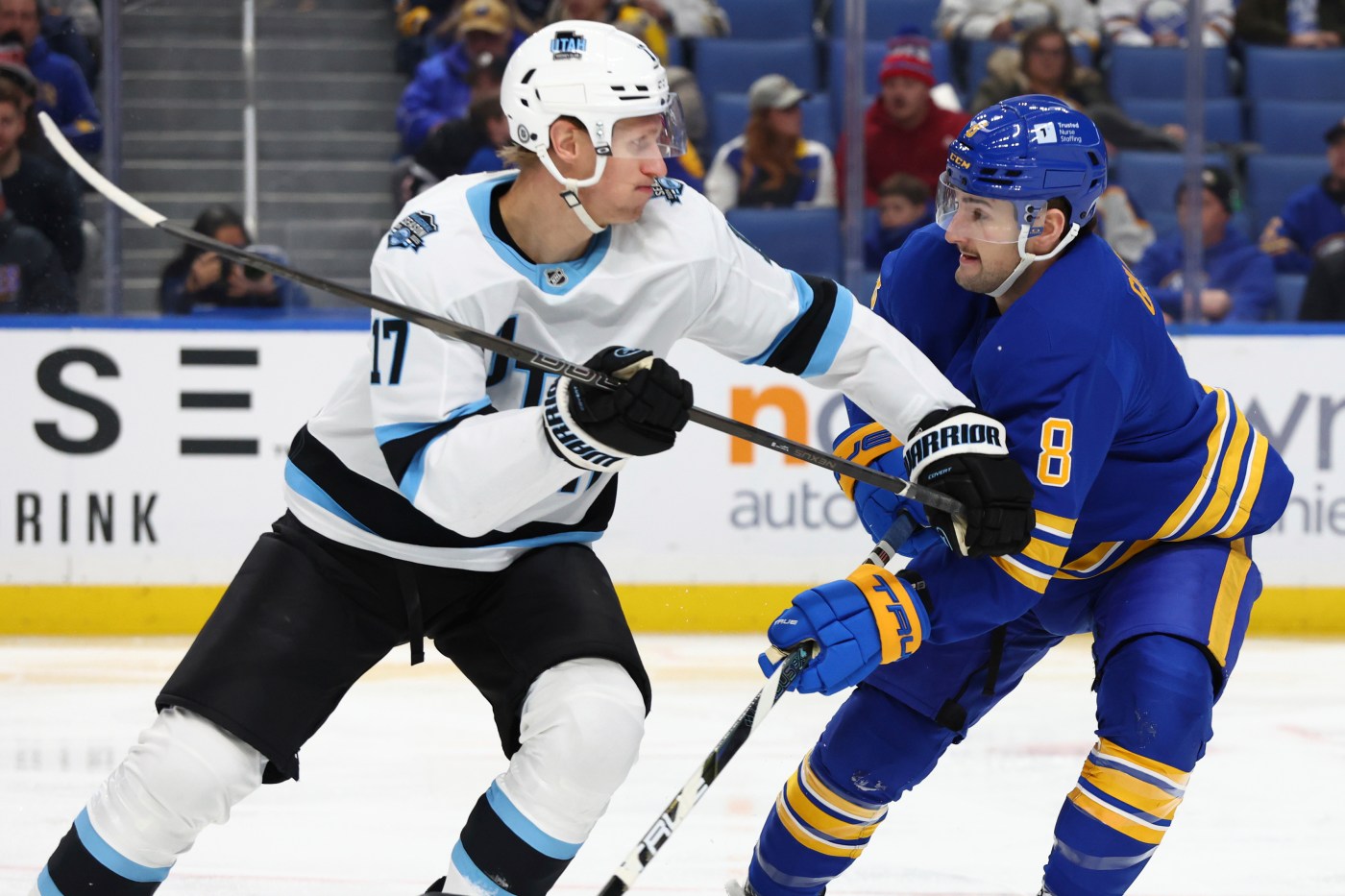
Ex-Coyotes loving their new hockey home in Utah so far
SALT LAKE CITY – Now more than a decade into a solid NHL career, former Minnesota Mr. Hockey winner Nick Bjugstad knows what it’s like to have to relocate abruptly. By comparison, his offseason move from Phoenix to Salt Lake City, when the Arizona Coyotes became the Utah Hockey Club, was a relative breeze.
“I’ve been traded a few times already. You’re in the new locker room the next day in a new city,” said the former Gopher, who was a prep star at Blaine. “We had four or five months to figure it out and plenty of help.”
In April, after beating Edmonton in their final home game, the Coyotes said a tearful goodbye to their small but dedicated army of fans in the Valley of the Sun, where they had played for more than 25 years.
Roughly 48 hours later, Bjugstad and several other players were met by a sold-out Delta Center audience (although the tickets were free) that showed up to say “Welcome to Utah.” That excitement has hardly died down despite a 4-5-2 home record heading into Tuesday’s game with the Wild, in an arena that is being remodeled but is far from perfect as a hockey venue.
“I think judging by our first game, the response, the excitement, obviously it’s the first NHL team here, so it’s there’s a lot of buzz,” Bjugstad said following the team’s Tuesday morning skate. “Good market and passionate, passionate fans.”
Coyotes slow-motion crash
Phoenix is one of the top 10 TV markets in the nation, and it’s a metro area that seemingly grows by a million people every decade or so. Commissioner Gary Bettman tried, for decades, to make the NHL work there. But the Coyotes could never get their venue right.
At first, after moving from Winnipeg in 1996, they shared a downtown Phoenix arena with the NBA’s Suns, but it was not designed for hockey, with a few thousand seats that only had a view of one net.
Then they moved to an Xcel Energy Center clone that was perfect for hockey, but located so far outside the heart of the metro area (picture the Wild playing their home games, poorly, in Northfield or Monticello) that bad teams meant bad crowds for a decade.
Their local ownership “savior” got the Coyotes evicted from that venue, and for their last two years in Arizona they played on the Arizona State University campus in Mullett Arena, a 4,500-seat building that is perfect for college hockey, but frankly embarrassing for the NHL.
By the end of last season, even Bettman had given up, and the team moved north to a smaller city with what will be a NHL-approved building within a few years. Even without a nickname (rumor has it they will become the Utah Yetis by this time next year) they have been a hit from the opening faceoff.
“The crowds, the atmosphere, the way the fans welcome our team in Utah, that was pretty cool, and we still feel it everyday,” Utah coach Andre Tourigny said. “People are really excited, they’re excited about the team and the ambiance all the time.”
Building a bright future
The team is owned by Ryan Smith, a 46-year-old businessman with an estimated net worth of $1.6 billion. He also owns the NBA’s Utah Jazz and Real Salt Lake of Major League Soccer, and has spared no expense to make this a hockey community, giving the team a blank check for a temporary practice facility they’re using this season, while building a permanent practice facility for 2025 and beyond.
Delta Center has been the Jazz home arena since 1991 and was built for basketball’s significantly smaller playing surface, although it has hosted prominent ice events like figure skating at the 2002 Winter Olympics. In the next few years it will be reconfigured to add roughly 5,000 more unobstructed seats for Utah hockey games.
Smith has said that he expects the arena to be the primary hockey venue in 2034 when the Winter Olympics come back to Utah for another go.
For Wild players prepping for their first game in Utah, there was some fun of seeing a new venue, although team captain Jared Spurgeon admitted once the puck drops, you don’t really notice anything on the other side of the glass.
“Everything’s been awesome so far. It’s cool to see,” Spurgeon said. “When you’re out there, you’re focused on one thing. Even at Mullett Arena it was a bit different, but once you get into the game you don’t really notice it.”
You cannot see the Wasatch Mountains from any rink in Bjugstad’s home state, and none of the 10,000 lakes have salt water. But unlike in Arizona, there is some visible snow at the higher elevations as Christmas approaches, and in the newest NHL market he admits there are a few things that remind him of home.
“Everyone has been really welcoming in this city, so it kind of reminds me of Minnesota,” Bjugstad said. “As far as a community, it’s a great place to raise a family, it seems like. I like having good neighbors and interactive neighbors and everyone kind of hangs out and it is very social, so I like that.”
After decades of wandering in the desert, it seems like the former Coyotes have found a home, if not a nickname just yet.
Dallas Stars defenseman Esa Lindell (23) and Utah Hockey Club center Nick Bjugstad (17) battle for the puck during the second period of an NHL hockey game Monday, Dec. 2, 2024, in Salt Lake City. (AP Photo/Rick Bowmer)
Related Articles
Wild finally get good health news with Jakub Lauko’s return
Wild uncover their nemesis, as Kings beat Minnesota a second time
For Wild, a raucous celebration when Yakov Trenin scores, finally
Another road rout as Wild shoot down Ducks
Wild’s deadly top line forcing opponents to play on-ice chess


